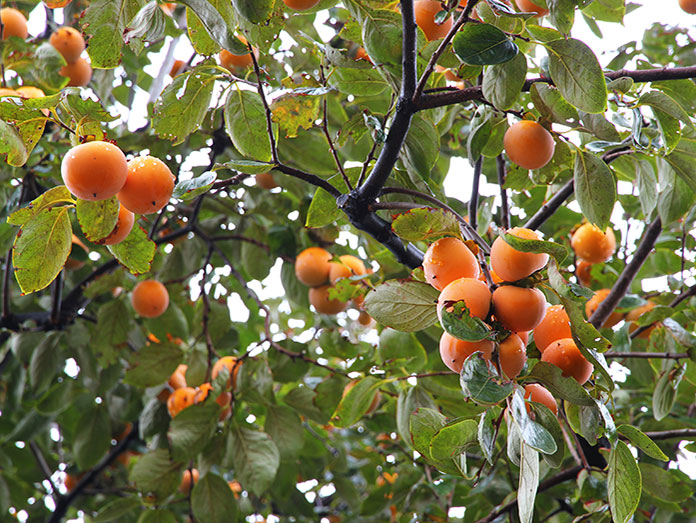Although Spain is still the most important supplier of kakis —a type of Japanese persimmon, Diospyros kaki— in Europe, this does not mean that it is the only country with commercial interest in this exotic fruit. There are already some producers in Northern Greece who grow several older and some newer varieties. According to industry insiders, Gebana, a Swiss trading company, is trying together with some Greek producers to introduce the delicious fruit to the Swiss market. In fact, the first two tons of kakis recently harvested in Greece (kakis are cultivated in Greece mainly in Crete and the islands of the Ionian Sea) arrived in Switzerland in sample boxes directly to Gebana customers who then evaluate the fruit for the company. The sample crates for the Swiss market were sold out within a few hours and there is a waiting list of another 500 customers who can’t wait to try the Greek kakis.
The Swiss are already familiar with Greek fruit, such as oranges, clementines, lemons, grapefruits, kiwis, watermelons and grapes. If the experiment proves successful, regular persimmon cultivation together with local producers in the South of Greece, will start, since the production and harvesting of the sweet fruit is still a novelty for producers and harvesters in the south of the country.
Other European countries like Germany and Austria are also interesting export destinations for the exotic fruit.
“The demand seems to be there. Because the shipment was completely sold out within a few hours,” stated Ms Sandra Dütschler, a representative for Gebana. Gebana AG mainly serves private households as well as smaller commercial customers. “Our marketing is mainly done by pre-ordering, which is why the goods are delivered directly to the customer. On the one hand, the customer gets the goods delivered as fresh as possible, on the other hand, we as retailers do not need to store the goods temporarily, which is why we do not have any storage costs.”
READ MORE: Healthy Living



















